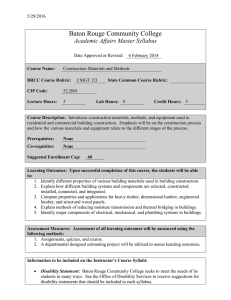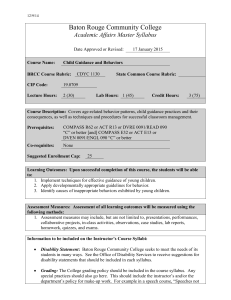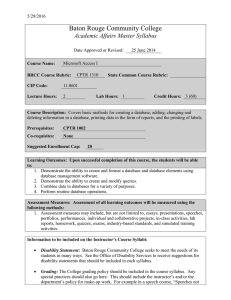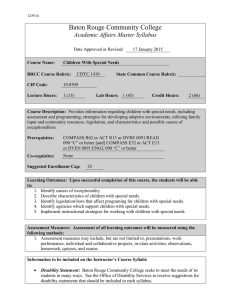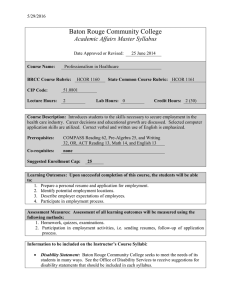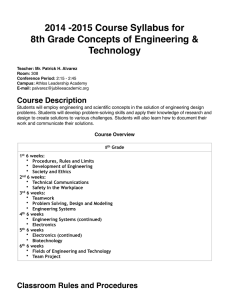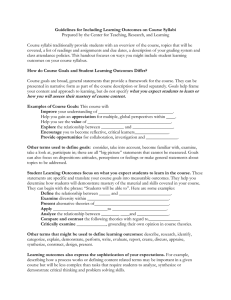Baton Rouge Community College Academic Affairs Master Syllabus
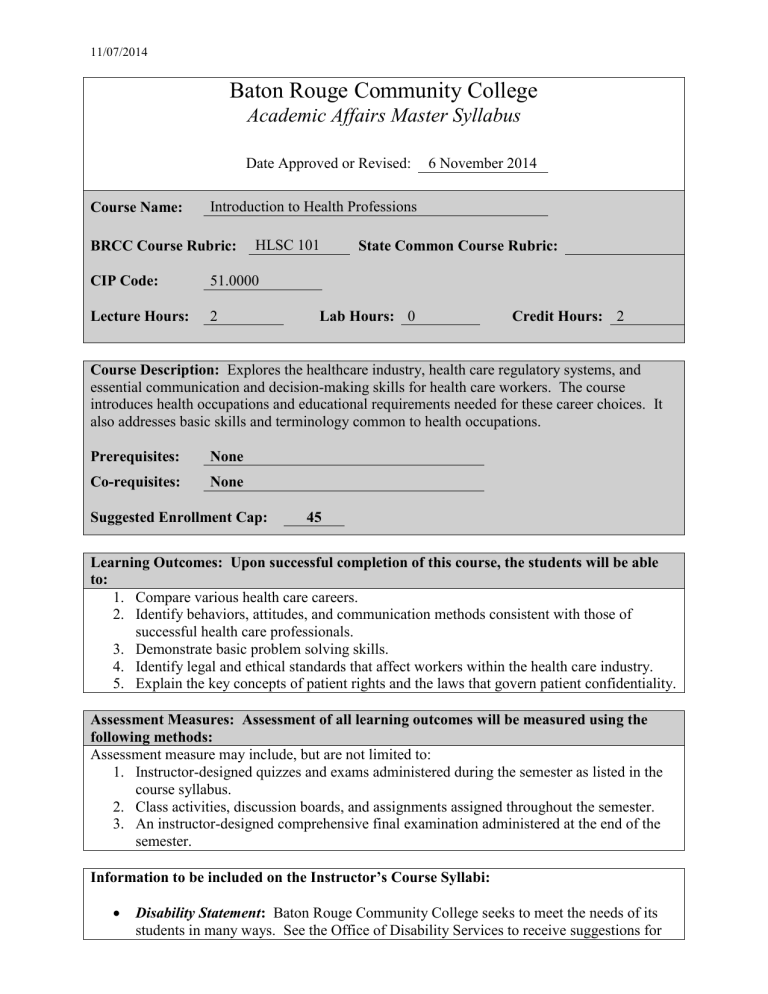
11/07/2014
Baton Rouge Community College
Academic Affairs Master Syllabus
Date Approved or Revised: 6 November 2014
Course Name: Introduction to Health Professions
BRCC Course Rubric: HLSC 101
CIP Code: 51.0000
State Common Course Rubric:
Lab Hours: 0 Credit Hours: 2 Lecture Hours: 2
Course Description: Explores the healthcare industry, health care regulatory systems, and essential communication and decision-making skills for health care workers. The course introduces health occupations and educational requirements needed for these career choices. It also addresses basic skills and terminology common to health occupations.
Prerequisites: None
Co-requisites: None
Suggested Enrollment Cap: 45
Learning Outcomes: Upon successful completion of this course, the students will be able to:
1.
Compare various health care careers.
2.
Identify behaviors, attitudes, and communication methods consistent with those of successful health care professionals.
3.
Demonstrate basic problem solving skills.
4.
Identify legal and ethical standards that affect workers within the health care industry.
5. Explain the key concepts of patient rights and the laws that govern patient confidentiality.
Assessment Measures: Assessment of all learning outcomes will be measured using the following methods:
Assessment measure may include, but are not limited to:
1.
Instructor-designed quizzes and exams administered during the semester as listed in the course syllabus.
2.
Class activities, discussion boards, and assignments assigned throughout the semester.
3.
An instructor-designed comprehensive final examination administered at the end of the semester.
Information to be included on the Instructor’s Course Syllabi:
Disability Statement: Baton Rouge Community College seeks to meet the needs of its students in many ways. See the Office of Disability Services to receive suggestions for
disability statements that should be included in each syllabus.
Grading: The College grading policy should be included in the course syllabus. Any special practices should also go here. This should include the instructor’s and/or the department’s policy for make-up work. For example in a speech course, “Speeches not given on due date will receive no grade higher than a sixty” or “Make-up work will not be accepted after the last day of class.”
Attendance Policy: Include the overall attendance policy of the college. Instructors may want to add additional information in individual syllabi to meet the needs of their courses.
General Policies:
Instructors’ policy on the use of things such as beepers and cell phones and/or hand held programmable calculators should be covered in this section.
Cheating and Plagiarism: This must be included in all syllabi and should include the penalties for incidents in a given class. Students should have a clear idea of what constitutes cheating in a given course.
Safety Concerns:
In some programs this may be a major issue. For example, “No student will be allowed in the safety lab without safety glasses.” General statements such as, “Items that may be harmful to one’s self or others should not be brought to class.”
Library/ Learning Resources: Since the development of the total person is part of our mission, assignments in the library and/or the Learning Resources Center should be included to assist students in enhancing skills and in using resources. Students should be encouraged to use the library for reading enjoyment as part of lifelong learning.
Expanded Course Outline:
I.
History and Trends of Health Care
II.
Health Care Systems
III.
Career in Health Care
IV.
Personal and Professional Qualities of Health Care Professionals
V.
Ethical and Legal Responsibilities
VI.
Cultural Diversity
VII.
Oral and Written Communication
VIII.
Computer Technology in Health Care
IX.
Promotion of Safety
X.
Infection Control
XI.
Preparing for the World of Work
2



